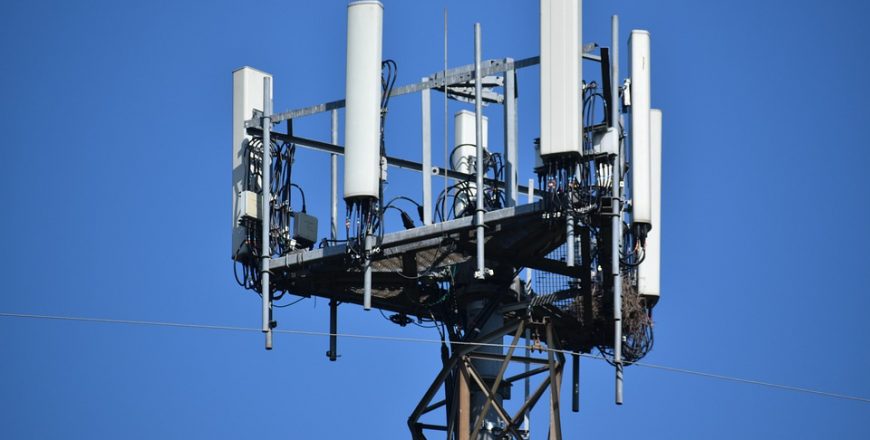Program Description: The Associate of Science in Telecommunications program prepares students in the field of telecommunications. The program focuses on the understanding and applying of new techniques in electronic technology for the aim of testing, maintaining, repairing, and upgrading digital as well as analog communication systems. The program also covers fundamentals of digital communications, its applications and how information technology converges create robust synchronous telecommunications systems. The program is designed to be an integrated educational curriculum taught using an applied, and theoretical approach. With the expansion of 5G wireless and 10G broadband, it is important to learn the fundamentals of digital communications, its applications and how information technology converges to create robust synchronous telecommunications systems. This program is specifically designed to guide the student in learning modern day communication system design and its correlating infrastructure. The topics also include wired, wireless, and point to point technologies that create mesh networks which enable instantaneous communication between two or more individuals.
Associate of Science in Telecommunications

Tower Technician
| Number of Jobs | Mean hourly wage | Mean annual wage |
|---|---|---|
| 215,700 | $29.55 | $61,470 |
Structured Cabling Technician
| Job Openings | Mean hourly wage | Mean annual wage |
|---|---|---|
| 12,111 | $16.09 | $33,465 |
Tower Climbing Fundamentals
- Authorized Climber (Competent Climber – Safety LMS)
- Authorized Rescue (Competent Rescue – Safety LMS)
- Basic Rigging/Capstan/Hoist
- Material Handling, Loading and DOT Standards
- Installation on Multiple Structures
- Small Cell/5g
Hazards and Safety, Job Assessment and Communication
- OSHA 10
- Personnel Protective Equipment
- CPR/First Aid/Blood Borne Pathogen
- RF/EME Hazards and Meter
- Jobsite Hazard Analysis
- Statement of Work
- Introduction to Standards
Telecommunications Fundamentals
- Basic Rigging/Capstan/Hoist
- Material Handling and Operation of Vehicles (DOT Standards)
- Installation on Multiple Structures
- Small Cell/5G Equipment
- Computer Literacy and Soft Skills
Fiber Optics
- Overview of fiber optic applications & installations communications systems utilizing fiber optics
- FTTx Workshop
- Antenna Types
- Field experience installing and testing fiber optic networks
Industry knowledge
- Telecommunications Fundamentals
- Digital Communications & Internet Protocol
- Introduction to Wireless Communications
- Introduction to Microwave & Radio Transmission Systems
- DAS Fundamentals
Structured wiring
- Structured wiring
- Cable theory
- NCTI installer
- Ladder safety and handling
- Bucket truck operation and safety
Installation on multiple structures
- Identification of Structures & their Unique Challenges
- Mitigating Risks Posed by Structures
- Rigging Challenges for Each Structure
- Proper Installation of Antenna/Small Cell on Various Structures
- Rooftop Deployment & Small Cell
- Utility Pole
- Stealth Tower
- Water Tower
Technical Skills
- Equipment/System Installation
- Testing, Troubleshooting & Maintenance/Repair
- Job Site Management & Security
- Job Site Process & Operations
Operate Hand & Power Tools
- Types of Hand & Power Tools
- Identification of Accessories
- Proper Handling Techniques of tools
- Safe usage of power tools
- Drills/Saws
- Torches
- Connector Tools
- Wrenches
- Crimping Tools
- Splicing Equipment
- Testing Equipment
Program Head information
Pete Matassa: MBA in Management from University of
South Florida, Tampa, Florida and BA in Management
from University of South Florida, Tampa.
Major
Wireless Technologies
General Education - 15 Credit Hours
1
ENG101 – Freshman Composition I – 3 Credit Hours – (Online)
2
ENG121 – Freshman Composition II – 3 Credit Hours – (Online)
3
HIS101 – History – 3 Credit Hours – (Online)
4
ALG101 – College Algebra – 3 Credit Hours – (Online)
5
SOC102 – Introduction to Sociology – 3 Credit Hours – (Online)
AS in Telecommunications Core - 45 Credit Hours
1
TBR101 – Introduction to Broadband Systems – 3 Credit Hours – (Online)
2
LED101 – Leadership and Interpersonal Communication – 3 Credit Hours – (Online)
3
TEC110 – Electrical Theory and Application – 3 Credit Hours – (Online)
4
TWR201 – Introduction to Wireless Antenna Systems – 3 Credit Hours – (Online)
5
TBR202 – Advanced Broadband Systems – 3 Credit Hours – (Online)
6
TIN211 – Installation of Macro Cell Sites – 3 Credit Hours – (Online)
7
TWE222 – Welding Methodologies and Grounding – 3 Credit Hours – (Online)
8
THA301 – Telecommunications Hazard Analysis – 3 Credit Hours – (Online)
9
TIT310 – Information Technology Fundamentals – 3 Credit Hours – (Online)
10
TFI320 – Fiber Optic Networks and Activation – 3 Credit Hours – (Online)
11
TWI322 – Ropes, Knots and Rigging Methodologies – 3 Credit Hours – (Online)
12
TWI323 – Macro and Micro Cell Site Deployment – 3 Credit Hours – (Online)
13
TWI330 – 5G Networks and Deployment – 3 Credit Hours – (Online)
14
THE340L – Height Fall Protection and Rescue Theory and Lab – 3 Credit Hours – Lab (On-ground)
15
TFI350L – Fiber Optics for ISP, OSP and DAS Theory and Lab – 3 Credit Hours – Lab (On-ground)
ADMISSION REQUIREMENTS
Special Requirements:
Applicant must...
- High School Diploma or GED.
- Valid government issued ID.
- At least 18 years of age upon application
Special Requirements:
Applicant must...
- must have a current and valid driver’s license.
- must be able to lift at least 50 lbs. (Evaluated on site prior to final acceptance)
- must be able to climb at least a 20 ft. ladder. (Evaluated on site prior to final acceptance)
- must be physically capable to climb at least 200 ft. (Evaluated on site prior to final acceptance)
$880
The total cost of the program is $29,610.00.
The duration of this course is 60 Credit Hours.
You will receive an Associate of Science in Telecommunications.
No announcements at this moment.
Be the first to add a review.
Please, login to leave a review
